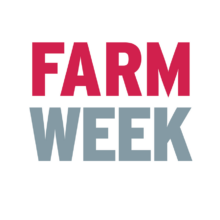Chance For Prime Minister To Show He Really Is Committed To A Healthier Community

Do you spot the pledge from Prime Minister Boris Johnston to start tackling the pressing problem of obesity in England that I mentioned in last week’s column? His experience with coronavirus has strengthened his resolve to tackle this serious threat to public health.
The Prime Minister’s pledge was followed swiftly by the publication of the first part of a National Food Strategy, led byentrepreneur Henry Dimbleby, who has taken advice from our colleague in the Food Foundation, Anna Taylor. Anna visited Balmoral Show in 2019 to promote the Food Foundation initiative Peas Please which FoodNI and UFU are signed up to.
Action on tackling obesity and the National Food Strategy initiative have been a long time in the making. But what will they mean to you and our highly successful agri-food industry?
At this stage in proceedings, it’s hard to say. In truth, we’veheard some of this before the current crisis caused by Covid-19. Four years ago, the then Government published the first chapter of a plan to half childhood obesity by 2030. But it has been left to gather dust, a fate it shares with other healthreports in the past.
Perhaps one good thing coming out of the pandemic will be action on obesity. The statistics are certainly worrying and require urgent and far reaching action. We’ve seen the impact of Covid-19, for example, on patients with existing conditions such as type 2 diabetes, stroke and other ailments. As medical science advances obesity is taking our health backwards, even before Covid 19 one in seven deaths was attributed to obesitywhich is almost on a par with smoking and way ahead of car accidents.
Focusing on health is a key theme of Dimbleby’s new National Food Strategy, the first independent review of UK food policy in almost 75 years. Part One outlines the problems in our food system and the executive summary can be read here https://www.nationalfoodstrategy.org/partone/ . The strategy is due to be followed with part two in 2021. As well as health, the other themes are: ensuring a sustainable and an equitable food system for future generations and tackling the issues of food safety and sovereignty post Brexit.
Part two is also expected to focus further on food policy and climate change. Dimbleby points out that “the deals we make now will shape the food system of the future, affecting everything from the livelihoods of our farmers to animal welfare and climate change.” Against the background of the current Brexit negotiations, it also warns that the issue of how to strike trade deals without lowering food standards needs to be addressed now before it is too late.”
The agri-food industry here is well aware of the threat to standards. Food NI has supported calls to protect health and other standards from threats such as chlorinated chicken and GM reared beef from the US in particular. And we will continue to do so. Preserving and protecting standards are essential if we are to ensure healthy food for our people in the post-Brexit era. Trade deals struck by the Government must not be allowed to undermine farmers, processors and the wider public.
Our farmers and processors all operate to the highest health standards and are committed to sustainability. Furthermore, we all know by now of the inspirational and heroic endeavours of the industry to feed the nation during the current coronavirus pandemic. The industry’s professionalism and dedication ensured there were no serious food shortages….and there continues to be plenty of wholesome and nutritious food available here especially from local sources.
What the National Food Strategy does offer is the prospect of a more holistic approach to helping people to eat well, which makes sense. Dimbleby’s recommendations, of course, will require proper support and funding to ensure their success in the short and long term. But perhaps they never came at a better time.








